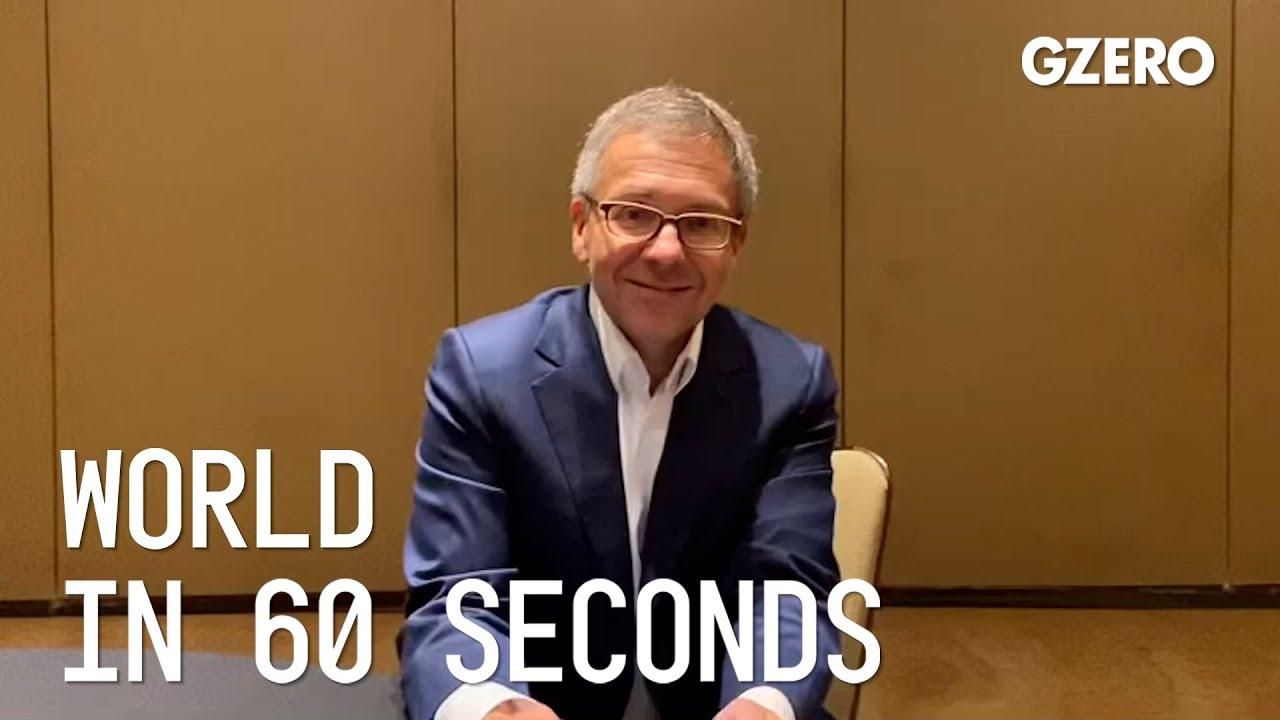
Ian Bremmer shares his insights on global politics this week on World In :60.
Might Congress take actions against members of Congress who play down threats for political reasons?
I suspect not. Obviously very disturbing that we are so tribal, we are so polarized that when you see political violence against people like Nancy Pelosi, the Paul Pelosi thing, knocked unconscious by a hammer, a guy goes into his house... And Gabby Giffords and Steve Scalise. This is getting normalized in the United States, and it should never be normalized. And in part it is because if it doesn't happen to your side, you don't pay attention to it. It's not such a big deal. That's not where the country needs to be, but it is where we are presently given just how dysfunctional this feeling of, "If you're not with me, you're my enemy," politically inside the United States. This is a natural impact of that occurring.
How long can China continue its zero-COVID policy?
Well, right now, zero-COVID is a bigger deal for disrupting the Chinese economy than it was before the Party Congress. I'm not in any way surprised by that and their vaccines are not effective. They still haven't vaccinated the over-eighties to a significant degree. They believe, and they're probably right, that their hospitals would be overwhelmed even in major second-tier cities if they were to just let the virus rip. And as a consequence of that, that means, I mean, right through 2023, as we see, you're still going to see stop, start in zero-COVID. But now they can make it more targeted, which means through surveillance, they can have a very quick reaction in lockdowns. And it doesn't have to be an entire city, it can be more of apartment complexes and neighborhoods and the rest. So less of an impact over time on the whole Chinese economy, but still, because of how transmissible this disease is, zero-COVID is going to be a very significant drag on Chinese growth.
Elon officially owns Twitter. How is it sinking in?
Ah, I see what you did there because he brought a sink, right? Brought a sink actually into Twitter. Who cares? I don't think it's as big of a deal as many do. Because yes, you're going to see more hate speech on Twitter, but I suspect that when that happens, a whole bunch of economic interests are going to kick in. Companies will say, "No, this is not something we're willing to support." They'll put pressure on and it's going to be run like a corporation focusing on profitability. There is a question of what happens if Elon fires a whole bunch of people and there's no longer any content moderation, their capabilities have been reduced. But again, on balance, I suspect that, as much as this is a hobby for Elon personally, in terms of being on Twitter, it is less of that in terms of how this runs as a significant business going forward. I wouldn't have recommended that he buy it because I think it's a big geopolitical headache for a guy that has too many of them. But I suspect that ultimately Twitter either doesn't change that much or becomes less important. If that's true it would be because of competition, not because he's running it. That's it for me. I'll talk to y'all soon.
- The Graphic Truth: Twitter doesn't rule the social world - GZERO Media ›
- What is China's zero COVID policy? - GZERO Media ›
- US political violence increases; Democrats seek Jan 6 ... ›
- Hard Numbers: South Korean tragedy, US political violence, deadly ... ›
- Twitter's scent of Musk - GZERO Media ›
- How long can China's zero-COVID policy last? - GZERO Media ›